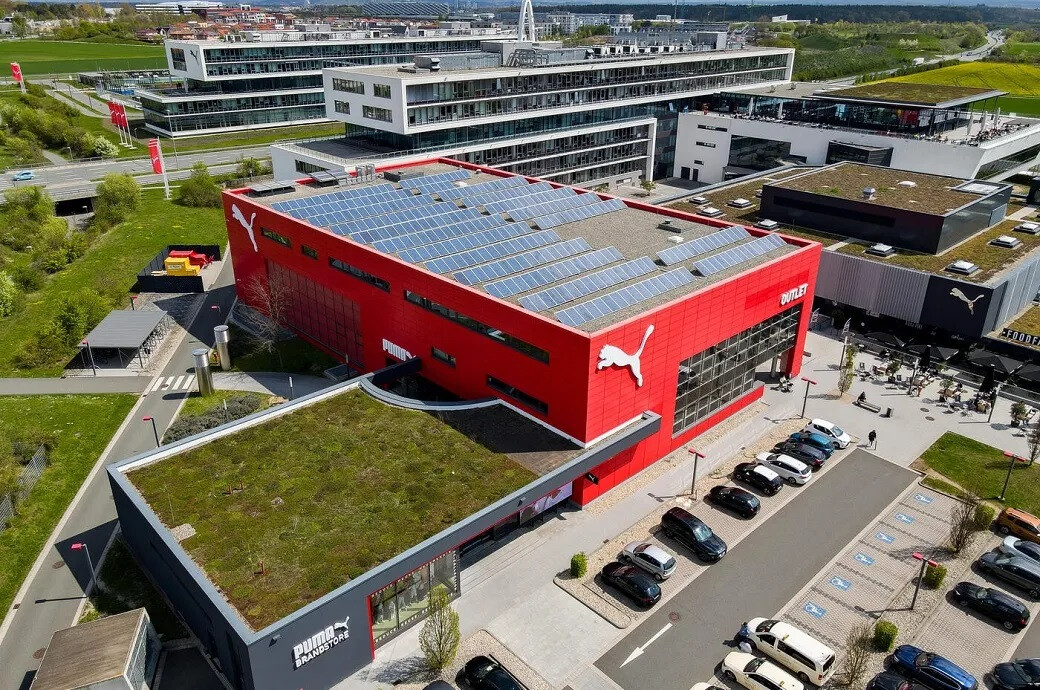
Global sportswear giant Puma has demonstrated a significant stride in sustainability by achieving its 2024 target of using 90% recycled or certified materials in its products a year ahead of schedule. The company's recently released sustainability report highlights substantial progress across key areas, including circularity, climate action, and human rights.
Originally setting this ambitious goal in 2021, Puma has markedly increased its utilization of recycled and certified materials, which inherently possess a lower carbon footprint. In 2024, the report indicates that 13% of the cotton used in Puma’s products was recycled, alongside approximately 75% of its polyester fabrics being derived from recycled sources.
Maria Valdes, Chief Product Officer at Puma, lauded the achievement as a testament to "excellent teamwork across Puma and our manufacturing partners." She further emphasized the company’s commitment to building on this momentum, stating, "We will continue to look for ways to reduce our environmental footprint as part of our Forever Better 2030 sustainability vision targets."
Pioneering Fiber-to-Fiber Recycling with RE:FIBRE Initiative
While recycled polyester is commonly manufactured from plastic bottles, Puma is taking a leading role in the industry through its innovative 'RE:FIBRE' project. This initiative focuses on fiber-to-fiber recycling, utilizing textile waste from both industrial and consumer sources as primary raw materials. Notably, 13.9% of the polyester used in Puma's apparel in 2024 was produced through RE:FIBRE. This represents a significant step beyond conventional plastic recycling, contributing to the establishment of a circular economy for textile waste.
Accelerating Climate Change Mitigation Efforts, Achieves 86% Reduction in Own Operations Emissions
In the realm of climate action, Puma continues its collaborative efforts with key suppliers to reduce greenhouse gas emissions across its supply chain. Consequently, emissions related to purchased goods and services have decreased by 17% in 2024 compared to 2017. Remarkably, Puma achieved an 86% reduction in emissions from its own operations in 2024 compared to 2017. This was accomplished through the transition to 100% renewable electricity for all offices, stores, and warehouses, complemented by the purchase of Renewable Energy Certificates (RECs). Further initiatives include increasing the number of electric vehicles in its global fleet and the installation of large-scale photovoltaic systems at its German headquarters and key logistics centers.
Aligning with the targets deemed necessary by scientists to limit global warming to 1.5°C above pre-industrial levels, Puma aims to reduce greenhouse gas emissions from its own operations by 90% and supply chain emissions by 33% by 2030.
Strengthening Human Rights Protection Within the Supply Chain, Enhancing Anti-Harassment Training and Wage Levels
Regarding human rights, Puma maintains its commitment to educating workers within its supply chain on critical issues such as sexual harassment. Since 2021, over 290,000 Puma employees and factory workers have received anti-harassment training. In 2024, the average wage, including overtime and bonuses, at Puma's core suppliers worldwide was 66% higher than the minimum wage, marking a 3 percentage point increase from the previous year. This underscores Puma's dedication to not only environmental stewardship but also to improving the well-being of workers within its supply chain.
Puma's Ongoing Journey Towards a Sustainable Future
Puma's recent achievements are the culmination of its commitment to integrating sustainability as a core value throughout its business operations. The increased use of recycled materials, the adoption of innovative recycling technologies, efforts to reduce carbon emissions, and the strengthening of human rights protection within its supply chain collectively position Puma as a leader in the sustainable fashion industry, transcending its role as a mere sportswear provider. Looking ahead, Puma is expected to continue its trajectory towards its 'Forever Better 2030' vision, undertaking diverse activities that positively impact both the environment and society.
Puma's endeavors are well-aligned with the growing consumer awareness of environmental issues and the increasing demand for sustainable products. It is anticipated that more corporations will emulate Puma's example by adopting sustainable business practices and actively participating in environmental protection and the fulfillment of social responsibilities.
[Copyright (c) Global Economic Times. All Rights Reserved.]





























